Brendan Fraser caps comeback with best actor Oscar win for The Whale
- Published
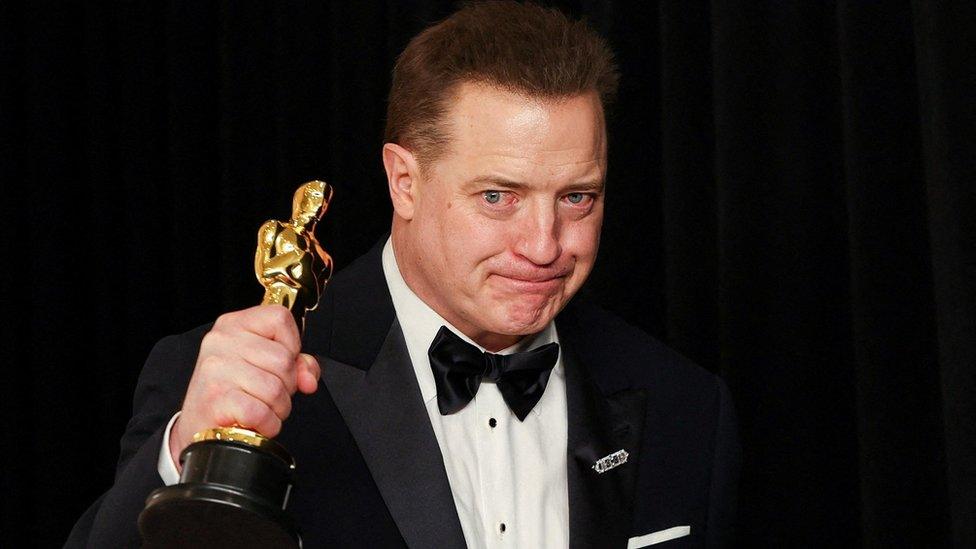
Fraser thanked The Whale director Darren Aronofsky for "throwing me a creative lifeline"
Brendan Fraser has scooped an Oscar for his first lead role in a major film for 12 years, in The Whale.
His best actor victory caps a comeback for one of Hollywood's former leading men who has admitted he was left "in the wilderness" for a decade.
The intense drama of The Whale allowed the Mummy and George of the Jungle star to show a new side to his talents.
Fraser plays a reclusive and morbidly obese English professor who wants to reconnect with his estranged daughter.
Struggling to catch his breath in an emotional acceptance speech, he explained that when he rose to fame, he had not fully realised his career trajectory would not necessarily continue.
"I started in this business 30 years ago, and things - they didn't come easily to me, but there was a facility that I didn't appreciate at the time. Until it stopped," he said.
The Whale is a reference to Moby Dick, and in one of several nautical references, Fraser said he felt like he had "been on a diving expedition on the bottom of the ocean, and the air on the line to the surface is on a launch being watched over by some people in my life".
They included his sons and manager. He also thanked director Darren Aronofsky for "throwing me a creative lifeline and hauling me aboard the good ship The Whale".
"Thank you again, each one and all. I'm so grateful to you," he added.
'Ready to start again'
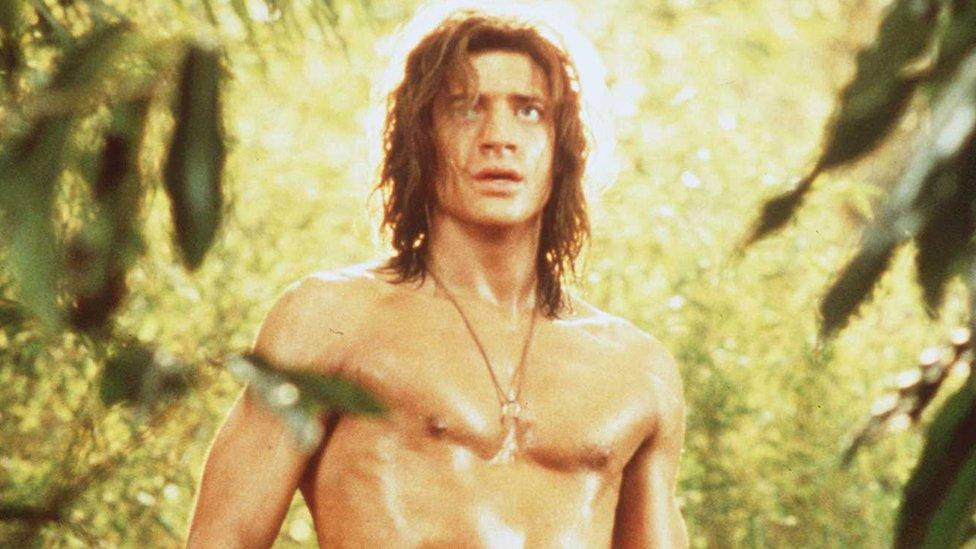
Brendan Fraser found fame as George of the Jungle in 1997
Fraser emerged as a major screen star playing George of the Jungle in 1997, then as heartthrob Rick O'Connell in the hit Mummy action trilogy from 1999-2008.
He took on further dramatic roles in Gods and Monsters, The Quiet American and Crash, as well as fantasy roles in Bedazzled and Journey to the Center of the Earth.
But his film work slowed from the late 2000s, amid years of injuries sustained while performing stunts, which resulted in operations on his spine, knee and vocal cords.
And following the breakdown of his marriage, there was a child support payment legal battle, while he also made a sexual assault allegation against a leading Hollywood figure.
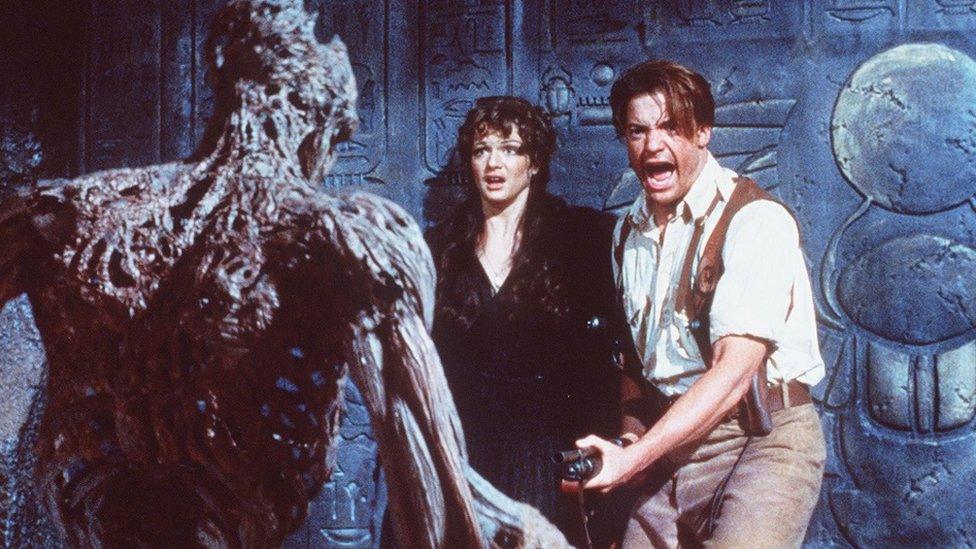
Brendan Fraser starred alongside Rachel Weisz in The Mummy in 1999
In 2018, he said Philip Berk, head of Golden Globes organising body the Hollywood Foreign Press Association (HFPA), had groped his bottom in 2003. The HFPA found that Mr Berk "inappropriately touched" Fraser, but that it "was intended to be taken as a joke and not as a sexual advance".
Fraser has said the incident "made me retreat" and "feel reclusive".
When the major roles dried up, he found it tough. "Your sense of value comes from the work that you're doing or if you're able even to be asked or invited to come and do it," explained Fraser.
"I realised I needed to take care of some physical things and chips and hips and joints and all of that medical curio that I'd earned along my journey in making those films early on, and I'm [now] ready to start again."
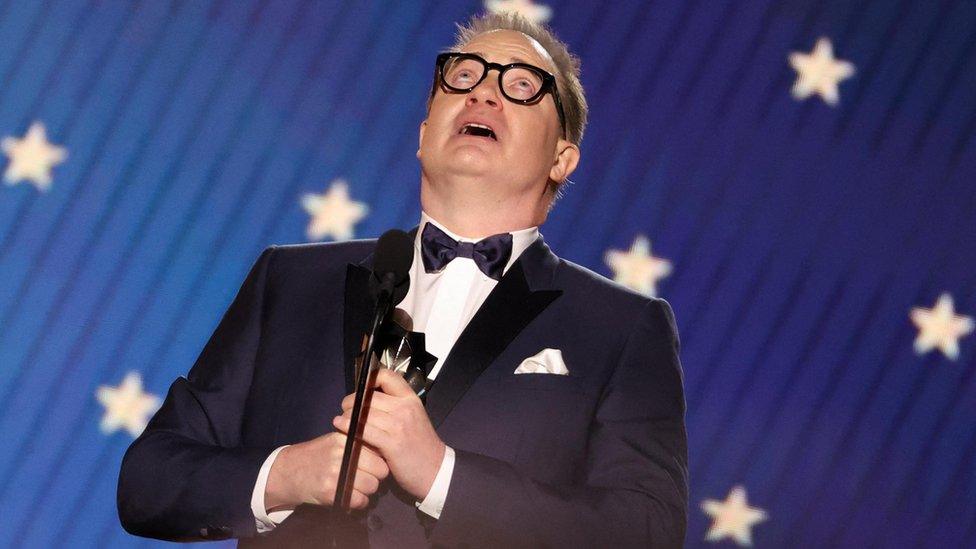
Fraser delivered an emotional acceptance speech at the Critics Choice Awards
Since The Whale's world premiere in September, the star's performance was talked about as one of the most powerful of the year, and perhaps the best of his career.
In its review, the Telegraph, external awarded five stars, calling the film "a thing of beauty and power". BBC Culture declared that the "captivating" Fraser "deserves an Oscar".
The Guardian, external was less impressed, however, giving two stars for Fraser's "disappointing return to movies", describing it as "a hectoring invitation to blubber".
In January, the returning US-Canadian actor, 54, told BBC News he hoped the feature would help to "end the bias against those who live with obesity".
Brendan Fraser plays a morbidly obese recluse in Darren Aronofsky's The Whale
Referring to his character, he said he felt the need "to be the voice for those who live the way that Charlie does", and "to depict him with dignity and with respect in a way that we haven't seen that character played on screen before".
"We can often lose sight that those are human beings with thoughts and feelings and hearts and families," he told BBC entertainment correspondent Lizo Mzimba.
Fraser's on-screen transformation was the result of heavy prosthetics, which he admitted was "a challenge", physically and emotionally.
But the "fat suit", as well as Fraser's casting as the gay character plus the film's depiction of Charlie, caused controversy in some quarters.
Mean Girls star Daniel Franzese questioned why Fraser was chosen. "He's a lovely man. And it's great," he told People, external in September.
"But why? Why go up there and wear a fat suit to play a 400lb queer man?... Who knows more about being an obese queer man than an obese queer man?"
US author and commentator Roxane Gay wrote in the New York Times, external that the film was "emotionally devastating" - but called the use of a fat suit "abhorrent" and said: "How this film deals with Charlie's fatness is egregious: exploitative and at times cruel."
She suggested it was "crystal clear" that Aronofsky and writer Samuel D Hunter "considered fatness to be the ultimate human failure, something despicable, to be avoided at all costs".
Stars shine on Oscars champagne carpet
As well as getting the Oscar, Fraser has won best actor prizes at the Screen Actors Guild Awards and the Critics Choice Awards.
"I was in the wilderness," said Fraser on stage during his Critics Choice acceptance speech.
"This movie, The Whale, is about love," he stated. "It's about redemption. It's about finding the light in a dark place."
While the last decade may have been difficult, he has enjoyed riding the award season wave.
When asked by TV chat show host Graham Norton whether he approved of people calling this period his "Brenaissance", Fraser replied: "You can call me whatever you like, just as long as you're calling me."
Related topics
- Published13 March 2023
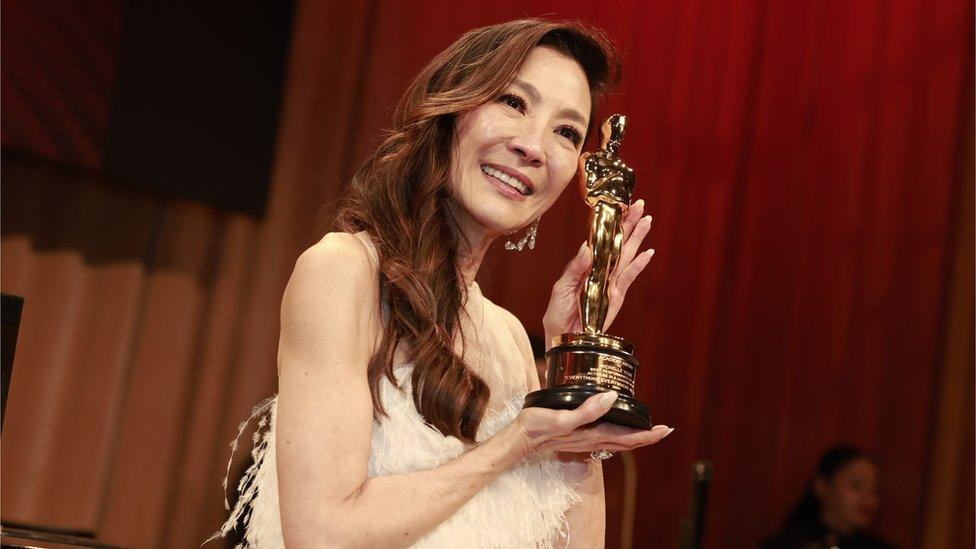
- Published12 March 2023
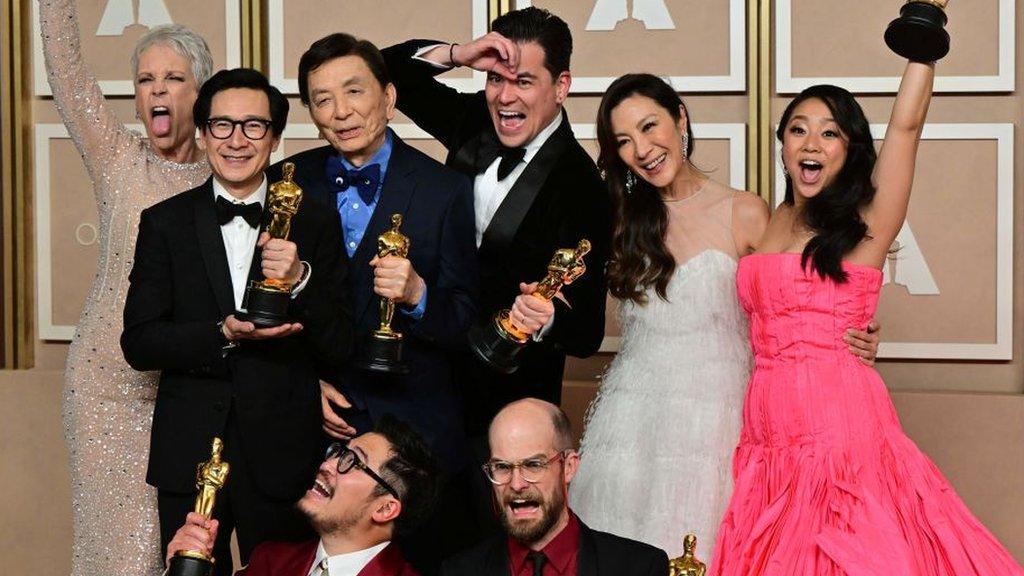
- Published13 March 2023
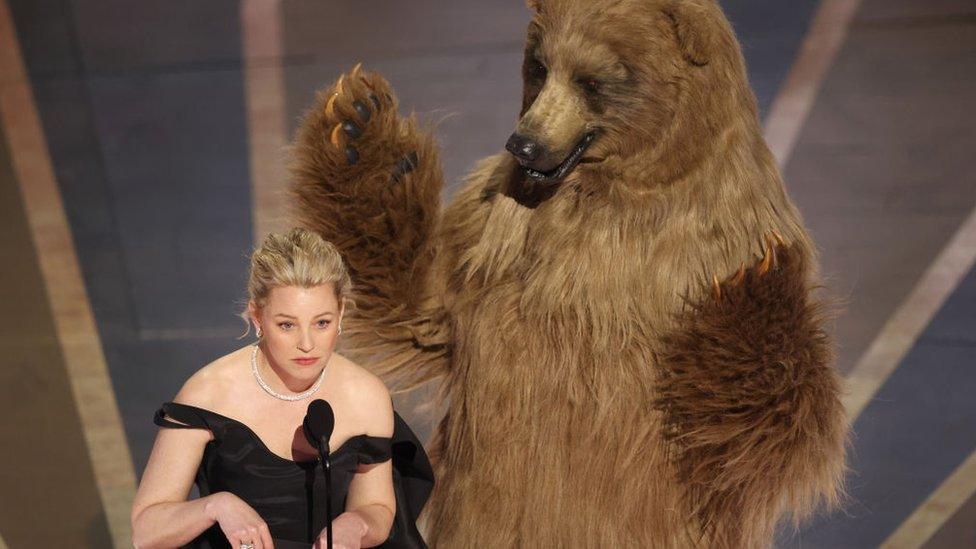
- Published13 March 2023
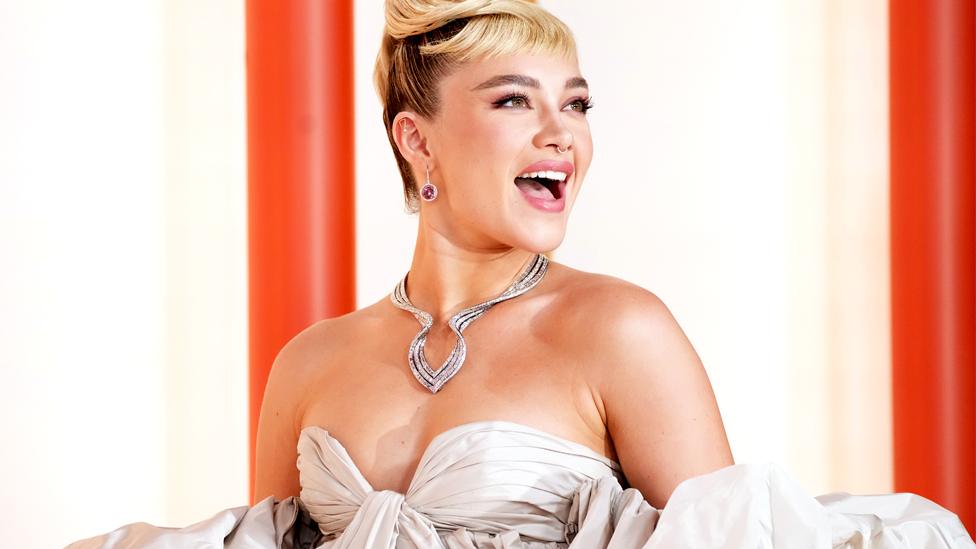
- Published13 March 2023
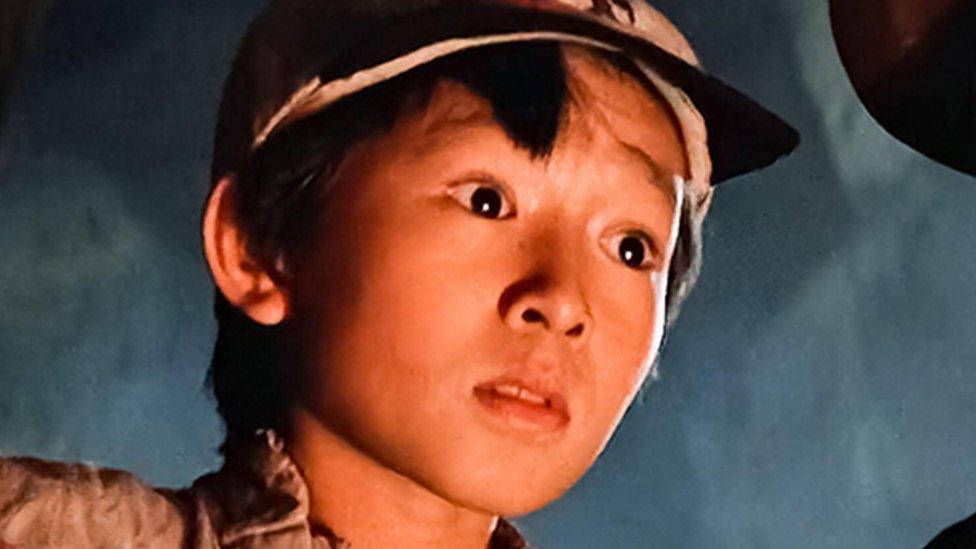
- Published13 March 2023
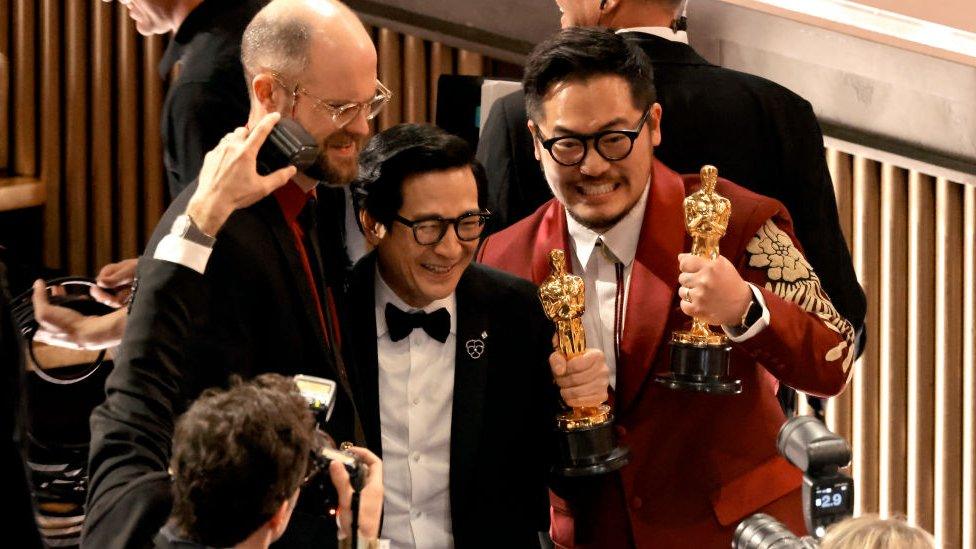
- Published13 March 2023
